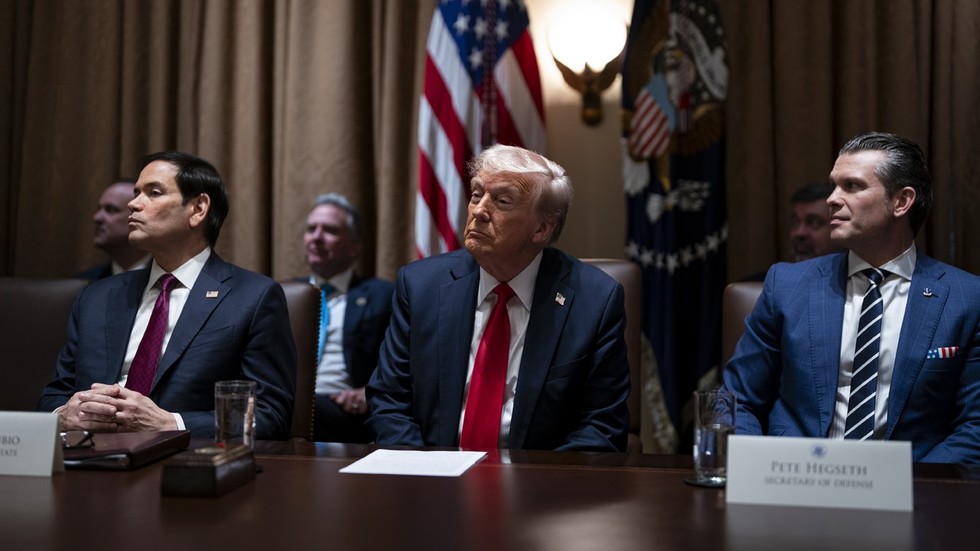By Timofey Bordachev, Program Director of the Valdai Club
Recent statements from senior American officials have raised eyebrows. US Secretary of State Marco Rubio said Washington is beginning to better understand Russia’s position as Ukraine negotiations proceed. Simultaneously, Defense Secretary Peter Hegseth declared the era of the US serving as Europe’s sole security guarantor is over.
Is this a diplomatic victory for Russia? Not yet. There is still a long road ahead. But these signals from Washington should not be dismissed as mere tactical maneuvers. Rather, they suggest the growing possibility of a strategic compromise – the very goal Russia sought with its European security initiatives in December 2021. Tragically, many lives have been lost to bring the international system to this point, a grim reminder that significant change in global affairs rarely comes peacefully.
For 80 years, the European security order has been biased against Russia. Even when the USSR or Russia formally participated, it was merely a mechanism for limiting Russian influence. The entire postwar ‘legitimacy’ of the international order, as the late Henry Kissinger observed, rested on containing Russia. After 1945, Western countries prioritized Russia’s containment above even their own autonomy. To abandon this principle would acknowledge the collapse of the old order and the necessity of constructing a new one.
Today’s political upheavals in the US make this shift conceivable, although certainty remains distant. Washington’s erratic policy toward Ukraine is merely a symptom of deeper changes in Europe’s political architecture. It would be naive to believe that earlier American hostility toward Russian interests stemmed from ignorance. Americans have often been stereotyped as crude ‘nouveaux riches’, but the truth is that states act based on calculations of power and interest, not emotions or misunderstandings.
For all its peculiarities, America remains a sovereign power. And now, its relative decline forces a reassessment of priorities. Washington no longer has the luxury of fulfilling endless foreign obligations. Its voters – who ultimately foot the bill – demand that their leaders focus on domestic concerns. In such circumstances, the need to freeze the conflict with Russia becomes paramount.
Faced with a rising China and diminishing global influence, Washington sees little value in clinging to outdated commitments. Support for European satellites or the Kiev regime has become an unaffordable luxury. In reality, American ‘guarantees’ to Europe were always more myth than substance. Their primary purpose was psychological – to convince Russia that the West is invincible, thereby deterring challenges without having to justify the US military presence in Europe.
Even during the Cold War, after the mid-1950s, the USSR had no intention of attacking Western Europe. After 1991, all Russia sought from Europe was commerce and leisure. There was never any real need for an external ‘protector’ on the continent.
Moreover, American politicians prioritize their own people. No US government would sacrifice the lives of its citizens to fulfill formal pledges to foreign nations. Even during the past three years, the greatest danger of escalation between the US and Russia stemmed not from a hypothetical defense of Europe, but from direct security risks involving American interests.
Western Europeans, of course, have long understood that US security guarantees are a convenient fiction. Even the most Russophobic regimes in the Baltics know this. But for decades, the EU states relied on this myth to justify hostile policies toward Russia while avoiding the burden of real defense expenditures. It became the ideological glue holding the European project together. Without it, they are at a loss: They have no alternative vision for a common order that isn’t based on enmity toward Russia.
The likely retreat of American leadership from Europe does not mean Russia should rush forward aggressively. On the contrary, it should proceed with cold-blooded calculation. War has never been the preferred tool of Russian foreign policy. Throughout history, Russia has favored diplomacy, even when progress was slow and interrupted by conflict. Patience has been its great strength.
Thus, Russia’s response to American disengagement will be measured and cautious. We are even prepared to assist our American colleagues in ‘explaining’ their evolving position to their allies. After all, a sudden epiphany regarding Russian interests requires careful handling.
In the emerging world, change will not be defined by grand declarations, but by the steady reassertion of sovereignty and the quiet death of the illusions that once governed international relations.
This article was first published by Vzglyad newspaper and was translated and edited by the RT team.
You can share this story on social media:
Read the full article here


